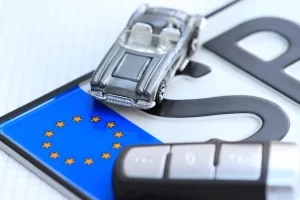Volvo EX90 order book closed due to 'tremendous reception'

Volvo likes the way 2023 has gone so far, and the carmaker is cautiously optimistic about the way things look like they’re going. In the company’s report on Q1 results, president and CEO Jim Rowan wrote, “We have started 2023 on a stable note, continuing to deliver on our ongoing transformation with increased revenues and core profits in the first quarter.” Compared to Q1 of 2022, overall sales were up 10%. Electric car sales — still just the XC40 Recharge and C40 Recharge for now — jumped 157% to take their share of the total to 18%, a 10% increase over last year. The easing of supply chain woes allowed plants to produce 9% more Volvos and Polestars in Q1 of this year than happened in Q4 of last year. On top of all that, shopper anticipation for the EX90 crossover is such that Volvo has closed the reservation books, already selling out the first production run.
We don’t know when the company stopped taking orders nor the size of the production run. There could have been four months at most from orders opening to orders closing, the debut happening at the beginning of November. We imagine the actual span was much shorter. The report describes a “tremendous reception from customers” that “surpassed the company’s boldest and most ambitious internal projections” for how the EX90 could do in the market.
On the other side, one note of caution in the Q1 report caught our eyes, Volvo writing that “costs for lithium skyrocketed 800 percent over the last two years.” The pendulum is swinging the other way, the next sentences telling readers “[we’re] now beginning to see lithium prices declining, which should improve underlying profitability on electric cars.” Still, it’s clear mining operations and R&D labs are going to be hugely busy over the next decade. The former is ramping up to gather the minerals needed for the electric revolution, the latter will be seeking battery chemistries that can reduce or eliminate the minerals currently needed for the electric revolution.
The next step in Volvo’s EV revolution is the debut of the EX30 crossover in June. The urban crossover is to play the Omega to the EX90’s Alpha in ways beyond physical, trying to lure younger buyers into the fold. After that, Volvo will convert the XC60, S60, and S90 to EVs, aiming to sell only electric vehicles by 2030 globally, although that could happen as early as 2026 in some markets such as Australia. A recent Reuters report said Volvo parent company Geely carved out Volvo’s ICE development division, and is working with Renault to create a new company that only works on internal combustion products, including hybrids.
Looking ahead to the rest of the year, the Q1 report believes, “If there are no unexpected supply chain disruptions, Volvo Cars expects a solid double-digit growth in retail sales for the year and a continued growth of fully electric car sales, taking their share even higher than last year’s share of 11 percent.”
Related video:



